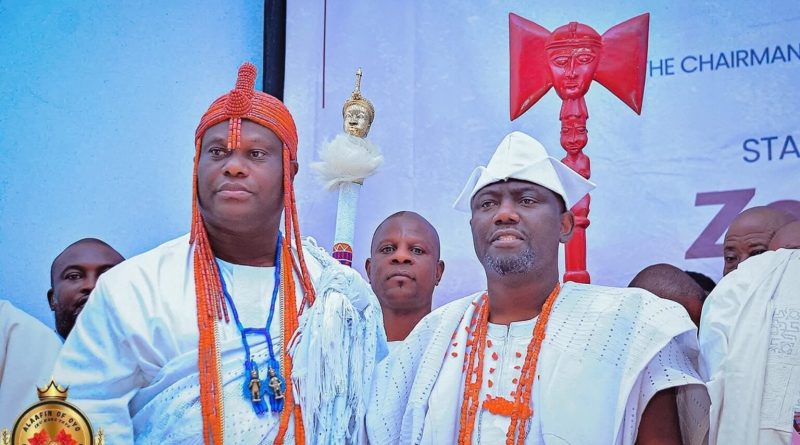Ooni, Alaafin reconcile in Lagos, form council for Yoruba unity
Leading Yoruba traditional rulers, the Ooni of Ife, Oba Adeyeye Ogunwusi and the Alaafin of Oyo, Oba Abimbola Owoade, met in Lagos on Friday in what has been described as a landmark reconciliation between the two ancient thrones.
The meeting was convened by businessman and philanthropist Kessington Adebutu as part of activities marking his birthday celebration.
At the end of the deliberations, both kings jointly announced the establishment of the Joint Council of Yoruba Unity (JCUY), a new body aimed at promoting peace, cultural preservation, and socioeconomic development across Yorubaland.
In a communiqué signed by the Ooni and the Alaafin, and witnessed by Mr Adebutu, the royal fathers reaffirmed their shared commitment to unity, mutual respect, and the advancement of the Yoruba nation.
“Today marks a defining moment in our shared history. We are committed to promoting harmony among Yoruba sons and daughters and to upholding the sacred values of mutual respect and brotherhood bequeathed to us by our forebears,” the communiqué stated.
The Ooni and Alaafin also emphasised the importance of sustained dialogue between traditional institutions, noting that the prosperity of the Yoruba race depends on collaboration rather than competition.
The gathering was attended by prominent Yoruba leaders, traditional rulers, and cultural figures, many of whom hailed the development as a new dawn for inter-kingdom relations.
Mr Adebutu, the convener of the meeting, expressed satisfaction with the outcome, describing it as a milestone of reconciliation and vision.
He said the coming together of the two foremost thrones would inspire peace and progress not only across Yorubaland but also among Yoruba descendants worldwide.
A rivalry rooted in history
Relations between the Ooni and the Alaafin have historically reflected the broader power dynamics of Yoruba history. While Ile-Ife is revered as the spiritual cradle of the Yoruba nation, Oyo emerged as a powerful political and military empire centuries ago.
In modern times, occasional disagreements over hierarchy, protocol, and representation in national affairs created visible rifts between the two palaces.
PREMIUM TIMES had reported the crisis that erupted after the Ooni of Ife,conferred the chieftaincy title “Okanlomo of Yorubaland” on businessman Dotun Sanusi.
The Alaafin of Oyo immediately challenged the Ooni’s authority to bestow such a title on anyone, arguing that only his stool can validly confer Yoruba‑wide titles.
According to the Alaafin, the Ooni’s authority is legally and traditionally limited to Ife Central, Ife North, and Ife South local government areas of Osun State, making the conferment an overreach.
In a statement from the Alaafin’s media office, the monarch issued a 48‑hour ultimatum to the Ooni to revoke the title, warning of “dire consequences” if the demand is ignored.
The Alaafin referenced a Supreme Court ruling that he claimed supported his exclusive right to bestow titles covering Yorubaland, emphasising that his stance is aimed at preserving traditional hierarchy and cultural order within the Yoruba nation.
However, the Ooni, through his media aide, Moses Olafare, dismissed the 48-hour ultimatum issued by the Alaafin.
The feud led to a division, with certain groups supporting the Alaafin and others claiming the Ooni held a higher rank.
Previous efforts by Yoruba elders and political figures to mend fences often resulted in brief symbolic gestures without lasting effect.
However, the Lagos meeting appears to have gone further to design a structured framework for ongoing dialogue through the newly created Joint Council of Yoruba Unity.

